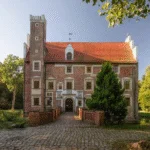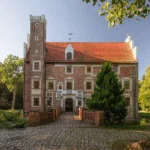Online slot machines have become one of the most popular forms of digital entertainment. Whether you are a beginner or an experienced player, slot demo games give you the perfect opportunity to practice, learn, and enjoy slots without spending a single cent. In this guide, we will explore what slot demos are, how they work, and why they can be your best tool for improving your slot game strategy.
What Is a Slot Demo?
A slot demo is a free version of an online slot machine that allows you to play without using real money. These demo versions have the same features, graphics, and bonus rounds as real-money slots, but instead of betting with cash, you use virtual credits provided by the game.
Slot demos are available on most online casino platforms and game developers’ websites. You can play them instantly in your web browser without downloading any software or registering an account.
How Slot Demo Games Work
Slot demos work just like real-money slot games, with one main difference: there’s no financial risk involved. You spin the reels using virtual credits, and any winnings you earn are also virtual. This allows you to test the game’s mechanics, payout frequency, and bonus features.
Key Features of Slot Demos
- Free Play Mode – Play without depositing money.
- Same Game Experience – Identical graphics, themes, and sound effects as real-money versions.
- No Registration Needed – Play instantly without creating an account.
- Unlimited Credits – Refresh the page to get more credits.
Benefits of Playing Slot Demo Games
Playing slot demo games offers many advantages, especially for new players who want to understand how slots work before risking money.
- Learn the Rules
Every slot machine has its own rules, paylines, and bonus features. Slot demos help you learn these without stress. - Test Different Strategies
If you have a betting strategy, a slot demo lets you try it out without any risk. - Try Before You Buy
Playing the demo lets you decide if you like a game before wagering real money. - Discover Bonus Features
Many slots include free spins, multipliers, or jackpot rounds. Demos let you explore these features in detail.
Popular Types of Slot Demo Games
Slot demos come in a variety of themes and gameplay styles. Here are some of the most popular categories:
- Classic Slots – Simple three-reel games with traditional symbols like fruits and bars.
- Video Slots – Modern slots with advanced graphics, animations, and multiple paylines.
- Progressive Jackpot Slots – Games with jackpots that grow over time.
- Megaways Slots – Slots with thousands of possible winning combinations.
How to Play Slot Demo Games Online
Playing a slot demo online is quick and simple. Here’s how to get started:
- Choose a Casino or Developer Website – Many online casinos and game developers like NetEnt, Pragmatic Play, and Play’n GO offer free demos.
- Select Your Game – Pick a slot that catches your interest.
- Load the Demo – Click on the game and start spinning the reels.
- Practice and Learn – Test different bet sizes and features.
Slot Demo vs. Real Money Slots
It’s important to understand the difference between demo and real-money slot games.
| Feature | Slot Demo | Real Money Slots |
|---|---|---|
| Cost | Free | Requires deposit |
| Risk | None | Possible financial loss |
| Winnings | Virtual only | Real cash |
| Purpose | Practice & fun | Real money prizes |
Tips for Getting the Most Out of Slot Demo Games
- Play Multiple Games – Try different slot themes and features.
- Understand Volatility – Some slots pay small but frequent wins, others pay big but rarely.
- Note the Bonus Triggers – Learn how bonus rounds are activated.
- Set a Practice Goal – Decide what you want to learn before switching to real money.
Final Thoughts
Slot demo games are an excellent way to enjoy online slots without the pressure of losing money. They let you practice, explore game features, and develop strategies in a risk-free environment. Whether you’re a newcomer or a seasoned player, demos are the perfect first step before playing with real money.


